University of California San Francisco
Give to UCSF-
-
Can Google Help Bridge Language Gaps Between Doctors, Patients?
-
'Does Your Knee Make More Of A Click Or A Clack?' — Teaching 'Car Talk' To New Docs
-
UCSF Is Top Public Recipient of NIH Funds
It was the 12th year in a row that UCSF claimed the top spot among public institutions, and the eighth straight year in which the University ranked second overall among institutions nationwide.
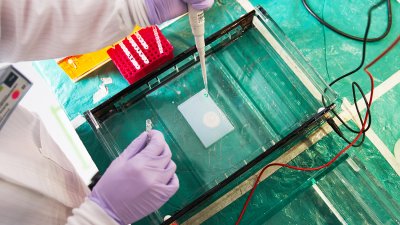
-
UCSF’s Top NIH-Funded Projects of 2018
More than a thousand projects across the University received federal funding from the National Institutes of Health in 2018, totaling more than $647.8 million.
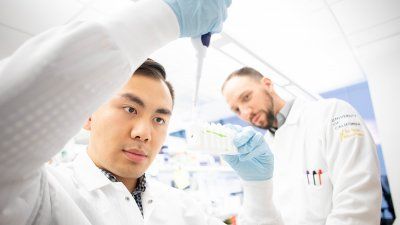
-
‘Executing Babies’: Here Are the Facts Behind Trump’s Misleading Abortion Tweet
-
Google Translate mostly accurate in test with patient instructions
-
Samsung's Galaxy Watch Is Supposed to Measure Blood Pressure – But How Accurate Will It Be?
-
Google Translates Doctor’s Orders into Spanish and Chinese with Few Significant Errors
Researchers at UCSF say Google Translate is trustworthy when translating written medical advice, but there are some caveats.

-
Samsung makes a step towards measuring blood pressure via a smartwatch, but it's not quite the holy grail
-
Q&A: Ron Vale, new chief of Janelia Research Campus, on why 15 years is a good research time frame
-
UCSF Researchers Call Out Brain Health Supplements as 'Pseudomedicine'
-
Could Blockchain Ensure Integrity of Clinical Trial Data?
UCSF researchers have created a proof-of-concept method for ensuring the integrity of clinical trials data with blockchain.

-
Lack of Medication Treatments for Meth Frustrates Doctors
-
The $15 Minimum Wage Doesn’t Just Improve Lives. It Saves Them.
-
Cellular Sickness Linked to Type 1 Diabetes Onset
A UCSF study of human and mouse pancreatic tissue suggests a new origin story for type 1 diabetes.

-
Elderly driving: How to talk to your loved ones about handing over the keys
-
Ron Vale Named to Senior Leadership of Howard Hughes Medical Institute
Ronald D. Vale, PhD, professor of cellular and molecular pharmacology at UCSF, has been named executive director of the Janelia Research Campus of the Howard Hughes Medical Institute and an HHMI vice president, effective in early 2020.

-
Samsung adds health-focused smartwatch, fitness tracker to its Galaxy lineup
-
Peer-Support, Healing Hands Offers New Options to Patients with Chronic Pain on Prescription Opioids
A program offering group support, acupuncture, mindfulness, massage and gentle exercise may help prevent patients on prescription opioids from spiraling down to drug misuse, overdose and death.

-
Gift Establishes School of Pharmacy’s First Presidential Chair
The gift established the endowed Jere E. Goyan Presidential Chair for the Advancement of Pharmacy, which honors the longest-serving dean of the School of Pharmacy.
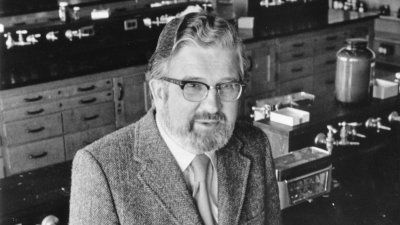
-
CRISPR Gene Editing Makes Stem Cells ‘Invisible’ to Immune System
UCSF scientists have used the CRISPR-Cas9 gene-editing system to create the first pluripotent stem cells that are functionally “invisible” to the immune system.
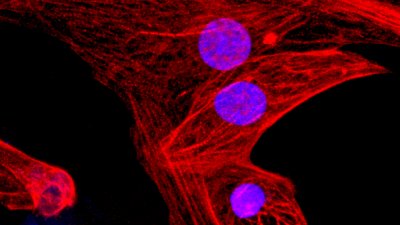
-
Hospital Wastes A Third Less Food After This One Change
-
When hospice care goes wrong, where can you turn?
-
Initiative Will Bring Together Engineers at UCSF to Tackle Challenges in Health
The Health Innovation Via Engineering program will be led by Tejal Desai.
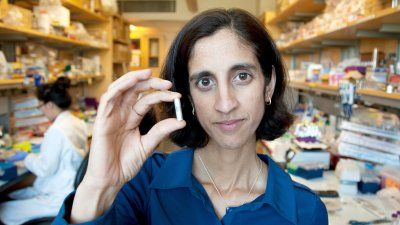
-
Everyday 'Triggers' May Bring on A-Fib Episodes, Study Finds
-
Most Triggers for Irregular Heartbeat Can Be Easily Modified
A personal survey of patients with AF has found that the majority of triggers for the condition are easily modifiable lifestyle choices, including alcohol, caffeine, exercise and lack of sleep.

-
Craigslist kidney donor, recipient paying it forward
-
Meth’s Comeback: A New Speed Epidemic Takes Its Toll on San Francisco
-
Science needs to think globally. A Paris Agreement for research could be the answer.